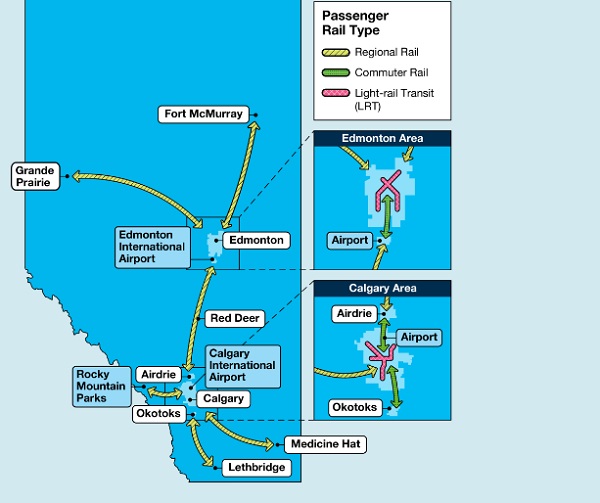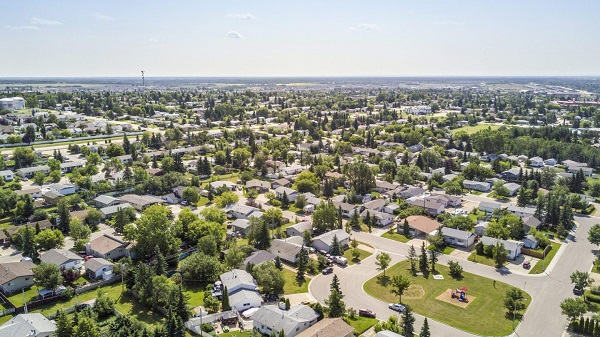Alberta
Aggressive measures in Alberta: Strict new rules for visiting seniors in care facilities

Province of Alberta COVID-19 Update for March 20
NOTE: Dr. Deena Hinshaw reports approximately 30 minutes into this video
Forty-nine additional cases of COVID-19 have been confirmed, bringing the total number of cases in the province to 195.
Aggressive public health measures continue to help limit the spread of COVID-19.
Latest updates
- Cases have been identified in all zones across the province:
- 126 cases in the Calgary zone
- 43 cases in the Edmonton zone
- 17 cases in the North zone
- Five cases in the South zone
- Four cases in the Central zone
- Of these cases, 10 are currently hospitalized, five have been admitted to intensive care units (ICU), and one patient has died.
- At this time, three have recovered.
- Aggregate data, showing cases by age range and zone, as well as by local geographical areas, is available online at alberta.ca/covid19statistics.
Stronger restrictions are being put in place for visitors to long-term and seniors care facilities. Essential visitors will be restricted to a single individual who can be family, a friend, or a paid companion who provides care and companionship necessary for the well-being of the resident (physical and mental health) and/or a single designated visitor for a person who is dying, as long as only one visitor enters the facility at a time. Every visitor will undergo a health screening.
- Albertans are reminded of the importance of social distancing as an important way to minimize the spread of COVID-19.
- Albertans are discouraged from attending large shopping malls and other large public spaces, unless necessary.
- A tip sheet is available to help Albertans understand ways to minimize close contact with others in community settings.
- Mass gathering limitations and restrictions around public recreation and private entertainment facilities remain in place across the province.
- If Albertans see facilities that are not following these limitations and restrictions, they are asked to notify public health inspectors at Alberta Health Services through the online complaint form.
- For concerns related to dental practices, contact the Alberta Dental Association and College.
- For concerns related to medical offices and other patient care facilities, contact the College of Physicians and Surgeons of Alberta.
- While there are no restrictions at this time regarding personal services like hair salons, Albertans are reminded to reduce the number of times they leave their house to perform errands, practise social distancing and limit the amount of time they spend in crowded spaces.
- All Albertans need to work together to overcome COVID-19. Albertans are asked to share acts of kindness they have experienced in their community during this difficult time by using the hashtag #AlbertaCares.
ATB Financial services
ATB Financial has temporarily closed selected branches and has reduced hours for all other branches in order to protect the health and safety of their team members, customers and the communities they serve. Details about ATB Financial’s customer relief programs, closures and reduced hours can be found at atb.com.
Driver road tests suspended
Effective immediately, driver road tests are suspended until April 20. Albertans who already have a road test booked will be able to rebook online using the same test permit at no additional charge. We are working with the commercial carrier industry to deliver emergency Class 1 road tests as necessary.
Alberta Corporate Registry annual returns suspended
In keeping with public gathering restrictions, deadlines are suspended for businesses, corporations and non-profits that require holding annual general meetings in order to file their annual returns with Alberta Corporate Registry.
Winter camping closing
Alberta Parks is closing winter camping effective immediately and not accepting new winter camping reservations to limit the spread of COVID-19. Bookings for winter camping sites will be cancelled and customers notified via the online reservation system or by phone. Refunds will also be issued.
Liquor and cannabis retailers remain open
Liquor and cannabis retail locations remain open in Alberta. AGLC is maintaining business as usual. There is no impact to supply. Contact aglc.ca for more information.
Some liquor manufacturers producing hand sanitizer
Some Alberta distillers have begun producing or indicating an interest to produce alcohol-based hand sanitizers in their facilities to help fill a gap in many markets due to COVID-19. AGLC is supporting the manufacturers’ efforts, and more information can be found at https://aglc.ca/bulletin/production-hand-sanitizer-class-e. Check with your local distiller regarding the availability of hand sanitizers.
Information for travellers
Travel outside the country is strongly discouraged. Given the rapid global spread of the virus, it is no longer possible to assess health risks for the duration of the trip.
Any traveller returning from outside of the country should self-isolate for 14 days, even if they are feeling well, and monitor for symptoms.
Any traveller who has returned before March 12 should closely monitor themselves for symptoms. If they experience symptoms, they should self-isolate immediately and call Health Link 811 for follow-up assessment and testing.
The Alberta government and Travel Alberta have launched a campaign to inform Canadians travelling in the United States and Mexico about the importance of returning home.
COVID-19 related information has been provided for departing and returning passengers at the international airports in both Edmonton and Calgary. This information has also been shared with all airports in Alberta and several airlines.
Quick facts
- The most important measures that Albertans can take to prevent respiratory illnesses, including COVID-19, is to practise good hygiene.
- This includes cleaning your hands regularly for at least 20 seconds, avoiding touching your face, coughing or sneezing into your elbow or sleeve, disposing of tissues appropriately, and staying home and away from others if you are sick.
- Anyone who has health concerns or is experiencing symptoms of COVID-19 should complete an online COVID-19 self-assessment.
For recommendations on protecting yourself and your community, visit alberta.ca/COVID19.
Alberta
Passenger rail experts from across the world to inform Alberta’s Passenger Rail Master Plan

Alberta’s future runs on rails
Alberta’s government is bringing together passenger rail experts from across the world to share best practices and inform the province’s Passenger Rail Master Plan.
As Alberta experiences record growth and evolving transportation needs, passenger rail infrastructure and services will be vital for enhancing accessibility and connecting communities. To support this, Alberta’s government is developing a Passenger Rail Master Plan to build the optimal passenger rail system for the province.
As part of the development of the plan, Alberta’s government is hosting a one-day forum to provide an opportunity for Alberta communities, industry and experts to collaborate and share information on passenger rail opportunities and challenges. The forum includes experts from Ontario, Quebec, California, Italy, Spain and Japan who are involved in passenger rail procurement, governance and operations. The sessions will allow for the sharing of best practices and lessons learned on passenger rail planning and development.
“Alberta was built by innovators and visionaries who saw potential in our province and its people. They believed that if you could dream it, you could achieve it. We believe there is opportunity and demand for passenger rail services in Alberta. Today’s forum marks an important step forward in the development of our Passenger Rail Master Plan and in achieving our vision for passenger rail.”
In line with the province’s commitment to engaging Albertans throughout the development of the Passenger Rail Master Plan, a survey has been launched to seek public input on passenger rail. Albertans are invited to complete the online survey by Dec. 20 to help shape the future of passenger rail in Alberta. There will be additional opportunities for Albertans to have their say on passenger rail in the future, including regional open houses which will be held in early 2025.
“Feedback from Albertans, Alberta municipalities, Indigenous communities and industry will be critically important to developing passenger rail services in Alberta. I encourage all Albertans to complete the online survey to help inform a shared vision for passenger rail to enhance accessibility, efficiency, and connectivity across the province.”
In April 2024, Alberta’s government shared its vision for passenger rail and announced the development of the Passenger Rail Master Plan for Alberta. The province’s vision is for an Alberta passenger rail system that includes public, private or hybrid passenger rail, including:
- a commuter rail system for the Calgary area that connects surrounding communities and the Calgary International Airport to downtown
- a commuter rail system for the Edmonton area that connects surrounding communities and the Edmonton International Airport to downtown
- passenger rail that runs between Calgary and Edmonton and the Rocky Mountain parks
- a regional rail line between Calgary and Edmonton, with a local transit hub in Red Deer
- municipal-led LRT systems in Calgary and Edmonton that integrate with the provincial passenger rail system
- rail hubs serving the major cities that would provide linkages between a commuter rail system, regional rail routes and municipal-led mass transit systems
The vision includes a province-led “Metrolinx-like” Crown corporation with a mandate to develop the infrastructure and oversee daily operations, fare collection/booking systems, system maintenance, and planning for future system expansion.
Quick facts
- The Passenger Rail Survey will be open until Dec. 20.
- Alberta’s Passenger Rail Master Plan is expected to be completed by summer 2025 and will include:
- a comprehensive feasibility assessment
- financial and delivery model options
- governance and operations recommendations
- a 15-year delivery plan
- public engagement
Related information
Alberta
REPORT: Alberta municipalities hit with $37 million carbon tax tab in 2023

Grande Prairie. Getty Images photo
From the Canadian Energy Centre
Federal cash grab driving costs for local governments, driving up property taxes
New data shows the painful economic impact of the federal carbon tax on municipalities.
Municipalities in Alberta paid out more than $37 million in federal carbon taxes in 2023, based on a recent survey commissioned by Alberta Municipal Affairs, with data provided to the Canadian Energy Centre.
About $760,000 of that came from the City of Grande Prairie. In a statement, Mayor Jackie Clayton said “if the carbon tax were removed, City property taxes could be reduced by 0.6 per cent, providing direct financial relief to residents and businesses in Grande Prairie.”
Conducted in October, the survey asked municipal districts, towns and cities in Alberta to disclose the amount of carbon tax paid out for the heating and electrifying of municipal assets and fuel for fleet vehicles.
With these funds, Alberta municipalities could have hired 7,789 high school students at $15 per hour last year with the amount paid to Ottawa.
The cost on municipalities includes:
Lloydminster: $422,248
Calgary: $1,230,300 (estimate)
Medicine Hat: $876,237
Lethbridge: $1,398,000 (estimate)
Grande Prairie: $757,562
Crowsnest Pass: $71,100
Red Deer: $1,495,945
Bonnyville: $19,484
Hinton: $66,829
Several municipalities also noted substantial indirect costs from the carbon tax, including higher rates from vendors that serve the municipality – like gravel truck drivers and road repair providers – passing increased fuel prices onto local governments.
The rising price for materials and goods like traffic lights, steel, lumber and cement, due to higher transportation costs are also hitting the bottom line for local governments.
The City of Grande Prairie paid out $89 million in goods and services in 2023, and the indirect costs of the carbon tax “have had an inflationary impact on those expenses” in addition to the direct costs of the tax.
In her press conference announcing Alberta’s challenge to the federal carbon tax on Oct. 29, 2024, Premier Danielle Smith addressed the pressures the carbon tax places on municipal bottom lines.
“In 2023 alone, the City of Calgary could have hired an additional 112 police officers or firefighters for the amount they sent to Ottawa for the carbon tax,” she said.
In a statement issued on Oct. 7, 2024, Ontario Conservative MP Ryan Williams, shadow minister for international trade, said this issue is nationwide.
“In Belleville, Ontario, the impact of the carbon tax is particularly notable. The city faces an extra $410,000 annually in costs – a burden that directly translates to an increase of 0.37 per cent on residents’ property tax bills.”
There is no rebate yet provided on retail carbon pricing for towns, cities and counties.
In October, the council in Belleville passed a motion asking the federal government to return in full all carbon taxes paid by municipalities in Canada.
The unaltered reproduction of this content is free of charge with attribution to the Canadian Energy Centre.
-

 Brownstone Institute22 hours ago
Brownstone Institute22 hours agoThe Most Devastating Report So Far
-

 Economy1 day ago
Economy1 day agoCOP 29 leaders demand over a $1 trillion a year in climate reparations from ‘wealthy’ nations. They don’t deserve a nickel.
-

 Censorship Industrial Complex1 day ago
Censorship Industrial Complex1 day agoAnother Mass Grave?
-

 ESG9 hours ago
ESG9 hours agoCan’t afford Rent? Groceries for your kids? Trudeau says suck it up and pay the tax!
-

 Alberta1 day ago
Alberta1 day agoMAiD In Alberta: Province surveying Albertans about assisted suicide policies
-

 Energy1 day ago
Energy1 day agoOttawa’s proposed emission cap lacks any solid scientific or economic rationale
-

 Alberta1 day ago
Alberta1 day agoOn gender, Alberta is following the science
-

 International10 hours ago
International10 hours agoElon Musk praises families on X: ‘We should teach fear of childlessness,’ not pregnancy



